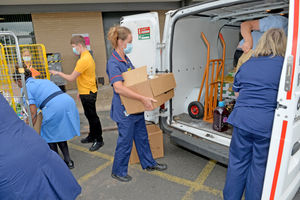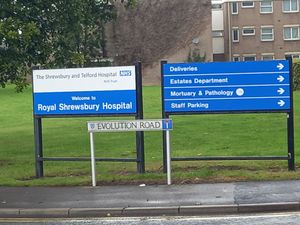Hidden impact of crippling debt in coronavirus crisis
The impact of coronavirus in the UK has been devastating – tens of thousands dead, the NHS overwhelmed and life as we know it put on hold for months.

Daily death counts and the effects of lockdown have been making headlines all year, but there is growing concern about a hidden impact which is hitting families all over the country – debt.
The economic disaster caused by the pandemic has, of course, been widely documented. Millions have been furloughed from work, while many have lost their jobs altogether.
But when the number affected is so huge and the impact so widespread, the individual stories of those people struggling to keep their heads above water often get drowned out by the noise.
'Alarming statistics'
Alarming statistics have been emerging about the scale of the debt crisis.
There are fears about what will happen to families when emergency Government protections disappear. The Treasury has stepped in to try to prevent evictions during the pandemic, while councils have also offered rent and council tax breaks for the worst off.
But furlough and other emergency measures can only last so long, as Chancellor Rishi Sunak has made clear.
The debt charity Step Change says struggling households "face a cliff edge when temporary protections against eviction and enforcement action expire".
It says the average household is £1,076 in arrears and has £997 worth of debt, while since the start of the coronavirus crisis 2.8 million people have fallen into arrears as they struggle to keep up with their bills.
Naturally, those earning the lowest have been hardest hit. A total of 44 per cent of those affected with an income of less than £30,000 have fallen behind or borrowed to make ends meet compared to 25 per cent of those with an income of £50-to-60,000, Step Change says.
According to the Just Finance Foundation, the West Midlands has the third highest level of debt of any region in the UK at 18 per cent. All four Black Country authorities are in the top eight for debt in West Midlands.
There are families in difficulty in Shropshire where support service Barnabas has seen the amount of people using its food banks double during the pandemic.
Karen Williams, project lead at Barnabas in Shrewsbury, said she expected an "imminent" increase in demand for foodbank and money advice services as protections protecting families come to an end. Around 200 people a week are using the food bank compared to around 100 before the pandemic struck, and that number is expected to rise further
She said: "A lot of people's debts were put on hold. People are not allowed to be evicted, bailiffs are not allowed to the door. We anticipate as soon as that pressure is released there will be an increase in demand for the food bank and money advice service.
"It's very difficult. I'm taking a call from someone every day who's being made redundant."
'Potentially one crisis away from catastrophe'
A recent report revealed 55 per cent of adults living in the West Midlands have less than £100 in savings, meaning most are living hand to mouth and are potentially one crisis away from catastrophe. And for many that crisis has arrived.
If the country thought it had moved on from stories of food banks and homelessness following the recession, the pandemic has brought them rushing back, effectively wiping out a decade of economic progress.
Step Change has called on the Government to ensure there are "strong protections against housing insecurity and unaffordable repayment demands, grants to address debts accumulated to pay for essentials during the crisis and investment and reforms to the social safety net to help struggling households recover".
Experts fear struggling families could now fall prey to loan sharks, while others bury their heads in the sand, ignoring the problem and hoping it will go away.
James Henderson is a senior development worker at Transforming Communities Together, which works closely with Just Finance Foundation and provides financial education courses to point people with money worries towards to right support services. he said it was crucial that those in trouble reach out for help and don't ignore the problem.
He said: "I totally understand how difficult it is to talk about money. Sadly, there is a real stigma around that. We would absolutely recommend people talk about it and get that help early."
Mr Henderson added the reality of the pandemic meant many families would be facing difficult times. He urged as many as possible to seek support.

He said: "It's a really worrying time for so many people with changes to furlough and people starting to come back to work. Many people will be worrying if they will have a job to go back to. Even if they have been furloughed they have only had 80 per cent of their pay, unless it's been topped up by their employer.
"Lots will be experiencing financial worries at this time and it's so important to talk about it and get help.
"We want everybody to know it's okay to talk about finances, that many people are struggling and you are not on your own. It's an old adage but a problem shared is a problem halved."
Mr Henderson is aware of the potentially dark consequences that can be associated with debt, and not taking action early on.
He said: "We know there is a big correlation between money worries and poor mental health.
"If you think of money, it's such an important thing. All your hopes, plans and dreams tend to revolve around money. It affects every part of your life. If you are not able to eat it can affect your physical health, if you are not able to go out it can affect your mental health.
"I think it's something many people are worried about. It's just important to talk about it because help is out there."





